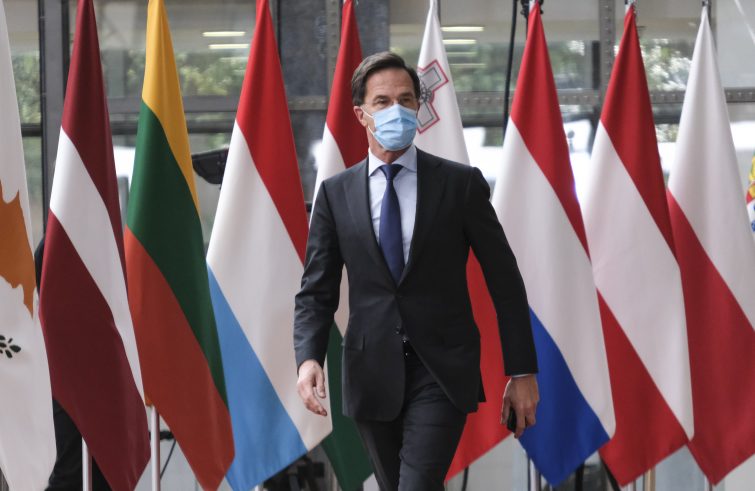
Dutch voters to elect the members of the House of Representatives starting today – until 17th March. A total of 14 parties are vying for 150 seats (there is no minimum threshold for the allocation of seats, which is why there are currently 15 parties represented in the House). Outgoing Prime Minister Mark Rutte’s Liberal-Conservative party VVD (People’s Party of Freedom and Democracy ) with 39 seats, leads the latest public opinion polls. No significant variations are projected for CDA (Christian Democrats), D66 (Liberal Democrats) and PvdA (Social Democrats), members of the current coalition. However, populist leader Geert Wilders (PVV, 12% with 19 seats) remains the second leading party. The coalition could shift to the left with the Groenlinks, left-wing Greens, replacing ChristenUnie, (Christian Union). This latter scenario might create complications in defining the cabinet agenda, the fourth led by Rutte, given major differences between the parties on socio-economic issues. It took 225 days for Rutte to form a government after the 2017 elections (the average is 94 days). As polling stations open, SIR interviewed Marcel Klok, an expert in macro-economics (he conducted a research study on the Dutch elections published in February for Ing), to gain some insight into the general atmosphere in the Kingdom of Willem-Alexander.
 Could voter turnout be jeopardised by the pandemic?
Could voter turnout be jeopardised by the pandemic?
The Government has taken a set of measures to avoid a drop in turnout: people can vote as early as two days before 17 March, especially the elderly and people with vulnerable health conditions. People over 70 are also allowed to vote by mail (2.4 million out of 13 million eligible voters). However, voter intentions show that 80% of the electorate will go to the polls; only a small minority say they are afraid to go out and vote (the turnout in 2017 was 82%).
What is the general climate in the country?
Social distancing measures are wearing people out and the government has eased restrictions slightly in recent weeks, although the number of new cases of COVID-19 remains high (around 5,000 a day). Shops were initially closed, then a click&collect initiative was introduced (buying online and picking up goods in the shop). Now customers are allowed to go to shops by appointment. There is still a curfew at 9 p.m. and only one guest is allowed inside homes.
However, people understand that restrictions are necessary and that provided the government supports the economy and businesses, the latter must remain closed.
And in terms of political debate?
The debate primarily revolves around COVID-19.
Could you explain why the Rutte government resigned in January? Did it affect approval ratings?
Over the last few years, with the support of parliament, the government enacted stricter rules on benefits in order to avoid abuses (there are many different types of benefits, for rent, children, low income, etc.). Millions of people were receiving some form of social allowance. But perhaps the restrictions were excessive: thousands of families were denied childcare allowances, including those who were eligible, and were even asked to repay the benefits they had received. Parliamentary and press enquiries uncovered this situation, for which many different players were responsible. But someone had to shoulder the blame, and the government did so by resigning. This does not seem to have affected popular consensus. The allowance system will remain an issue for the next government to tackle, but the parties are fairly unanimous on the direction the reform should take.
Has the economic crisis linked to the pandemic affected confidence in the outgoing government?
No, the government increased public assistance, with additional instruments; it was very generous. We have never seen such a substantial aid package in the history of the Netherlands.
Billions of Euros have been allocated in income and salary support measures, social measures to curb unemployment.
However, inequalities remain: the self-employed or people with temporary contracts have lost their jobs (and most of them are young); differences exist also between economic sectors. On a national level, while unemployment rates soared during the first lockdown, now figures have decreased. Even GDP decline in 2020 was not as dramatic as in other European countries (-4%). Of course some negative consequences are expected once support schemes end in June 2021, unless new ones are introduced: unemployment and insolvencies are bound to increase, although forecasts are less negative than in the previous economic crisis.
 Is populist leader Geert Wielders likely to lose some of his popular consensus?
Is populist leader Geert Wielders likely to lose some of his popular consensus?
His has been the second largest party for years. Last year another populist party, the Forum for Democracy (Fvd, led by Thierry Baudet), took votes from Wielders winning 10% of the vote. Populism, however, is hardly an issue today, and the outbreak of the coronavirus pandemic had the effect of boosting support for government parties.
Will the elections reconfirm a fourth Rutte government?
In The Netherlands it is possible and not unusual for a Prime Minister to remain in office for a long time. And Rutte is very pragmatic: if he fails to secure consensus, he will seek support from the opposition, which is what he did in Senate all along because the government lacked a majority. Mark Rutte is highly regarded and appreciated also at a personal level.
In your opinion, what is the general attitude towards the European Union?
The Netherlands traditionally favours the EU on account of economic advantages, as ours is a very small country. However, there has been ever-increasing diffidence in the last decade in the face of a stricter EU, and with respect to social issues, such as migration, or fiscal policies.
The Netherlands will presumably continue to be pro EU integration inasmuch as each Member State is willing to keep their domestic finances in order.
Left-wing parties, which are not in government today, appear to lean towards a larger Europe with greater solidarity, while there is some opposition from the Right-winged parties.











